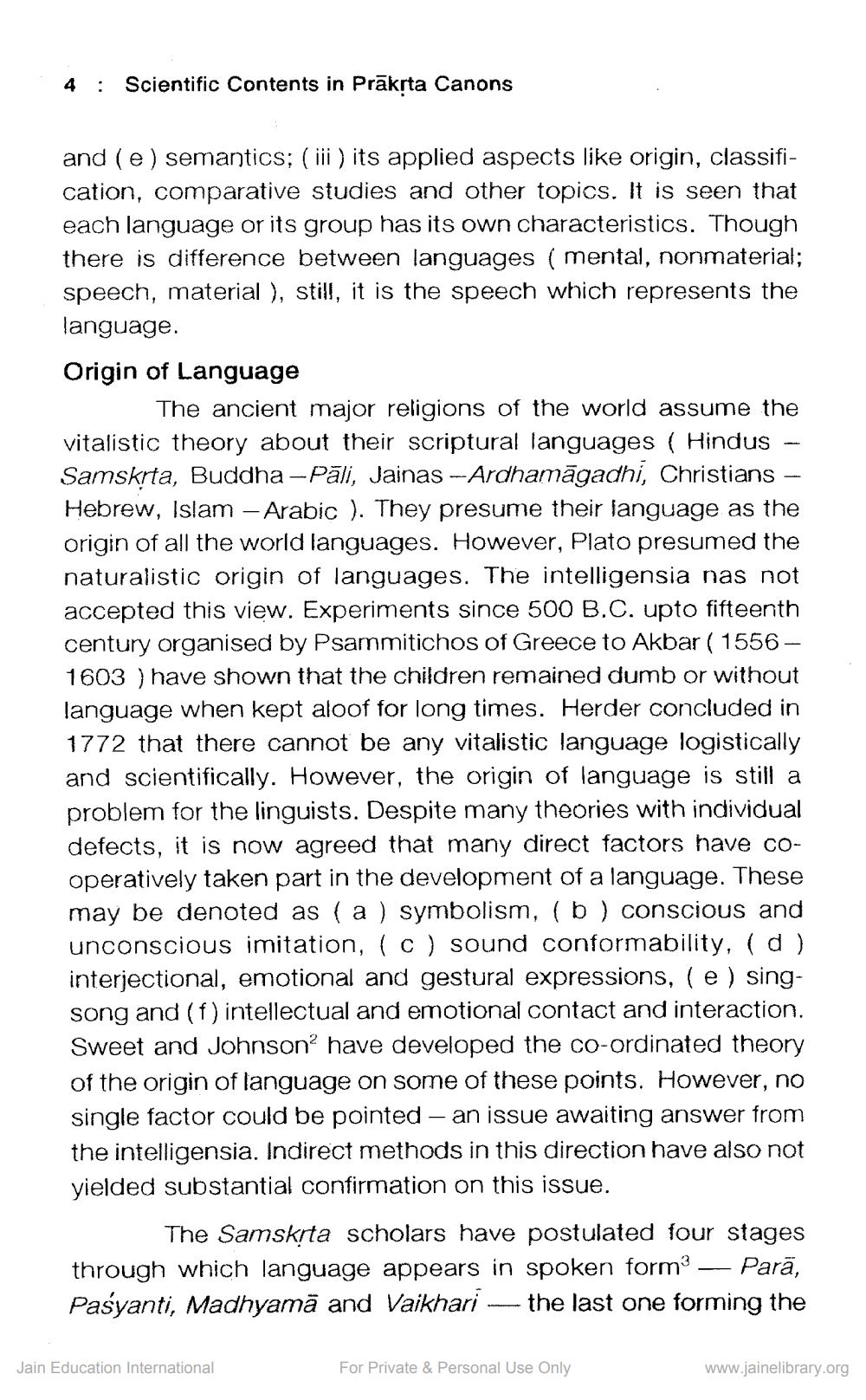________________
4 : Scientific Contents in Prākrta Canons
and (e) semantics; (iii) its applied aspects like origin, classification, comparative studies and other topics. It is seen that each language or its group has its own characteristics. Though there is difference between languages ( mental, nonmaterial; speech, material ), still, it is the speech which represents the language. Origin of Language
The ancient major religions of the world assume the vitalistic theory about their scriptural languages ( Hindus - Samskrta, Buddha --Pāli, Jainas --Ardhamāgadhi, Christians - Hebrew, Islam - Arabic ). They presume their language as the origin of all the world languages. However, Plato presumed the naturalistic origin of languages. The intelligensia nas not accepted this view. Experiments since 500 B.C. upto fifteenth century organised by Psammitichos of Greece to Akbar ( 1556 - 1603 ) have shown that the children remained dumb or without language when kept aloof for long times. Herder concluded in 1772 that there cannot be any vitalistic language logistically and scientifically. However, the origin of language is still a problem for the linguists. Despite many theories with individual defects, it is now agreed that many direct factors have cooperatively taken part in the development of a language. These may be denoted as ( a ) symbolism, (b) conscious and unconscious imitation, (C) sound conformability, (d) interjectional, emotional and gestural expressions, (e) singsong and (f) intellectual and emotional contact and interaction. Sweet and Johnson’ have developed the co-ordinated theory of the origin of language on some of these points. However, no single factor could be pointed - an issue awaiting answer from the intelligensia. Indirect methods in this direction have also not yielded substantial confirmation on this issue.
The Samskrta scholars have postulated four stages through which language appears in spoken form — Parā, Pasyanti, Madhyamā and Vaikhari - the last one forming the
Jain Education International
For Private & Personal Use Only
www.jainelibrary.org




